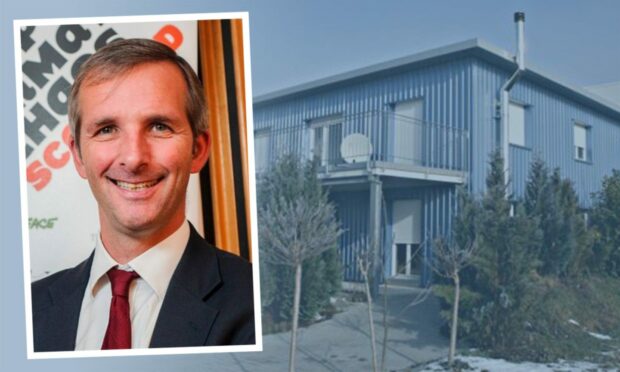Campaigners hoping to block assisted dying in Scotland warn a change in the law could put the country’s end-of-life care on a “slippery slope”.
Two groups who oppose the plan took their concerns to Holyrood, where a third attempt is under way to draft legislation and gain majority support.
However, Orkney MSP Liam McArthur, who is steering the proposal through parliament, insisted people should have full confidence safeguards will be in place.
He also claimed not legalising assisted dying could prevent people from having a dignified death, putting them and family members through more trauma.
Members of the public are being asked to have their say on whether assisted dying should be legalised in Scotland.
Opponents from Care Not Killing Scotland and Not Dead Yet UK told MSPs they are concerned the eligibility could be expanded too far.
International warning
Academics from Canada and the Netherlands, where assisted dying is legal, said they have concerns about the way the law works in their own countries.
Theo Boer, a professor of healthcare ethics from The Netherlands, claimed around 17 people a day in the UK will suffer in death – meaning more than 99% will not experience suffering when they die.
He also claimed other groups may call in the future for the law to be extended to cover people with a non-terminal illness, mental illness, dementia patients.
He suggested parents might request assisted dying for their children.
Professor Boer said: “Based on the Dutch numbers – 4.5% assisted deaths currently, and further increasing – we should expect as many as 85 assisted deaths per day, 35,100 per year nationally in Great Britain.”
Don’t be deceived – administering death is cheaper and easier than providing care.
– Dr Leonie Herx
Dr Leonie Herx, chair of the division of palliative medicine at Queen’s University in Ontario, warned of potential non-compliance with the regulations in Canada.
She said there have been reports of disabled Canadians being pressurised into assisted dying due to misconceptions about their quality of life or the high cost of care.
She added: “Legalising euthanasia fundamentally changes medicine, the role of the doctor, and society.
“Once brought into medicine, there are no rules or safeguards that you can put in place that will keep euthanasia restricted to a very few with extenuating circumstances, as portrayed by its proponents.
“Don’t be deceived – administering death is cheaper and easier than providing care, and it will quickly become the solution for any form of human suffering, as we are seeing in Canada.”
The group also told MSPs advances in medical technology and healthcare means it is difficult to determine a person’s long-term health outcomes.
Safeguards will be put in place
Mr McArthur, the Lib Dem MSP for Orkney, says there will be adequate safeguards in place.
He urged members of the public to concentrate on what is being proposed in his proposal for Scotland rather than what is happening in other countries.
He said: “It will be limited to adults with a terminal diagnosis and that would have to be arrived at by two separate doctors, one of which has no connection with the individual.
“They need deemed mental capacity as well.”
He added: “There will be safeguards in place but the actual eligibility criteria, I would argue, will be very restrictive.
“Many have even voiced frustration that it doesn’t go further.
“There needs to be reassurance no pressure will be applied on people.
“Benelux and Canada have much broader laws from the outset and they have reduced barriers to access, but have not expanded the eligibility.
“International precedent shows that laws can be changed, but we need to find a proposal for Scotland that has security, dignity and compassion underpinning it.”
He says any change in the law around assisted dying could be linked to improving palliative care as well.
‘Dignity’ in death
The current ban on assisted dying in Scotland means many are forced to pay thousands to travel to the Dignatas clinic in Switzerland, or commit suicide, according to Mr McArthur.
⏰ There is now less than a month until the consultation on my proposals for a Members Bill on Assisted Dying for Terminally Ill Adults closes.
▶ Share your views by 22 December: https://t.co/LhH0UbC7iK
ℹ #BSL and easy read information on the proposal: https://t.co/oEDDtarTYn pic.twitter.com/nlTvpJqOea
— Liam McArthur MSP (@Liam4Orkney) November 23, 2021
He said: “I understand the anxiety around vulnerable people but under the current present blanket ban they go to Switzerland, and for many people that is not an option.
“That leads to them taking matters into the own hands by refusing food and drink to starve themselves to death, or take even more traumatic measures which are unimaginably awful for the individuals themselves and their families and friends.
“Having this debate is useful in exploring the whole issue of how we die and what a good death looks like.”
The consultation on assisted dying is open until December 22.


